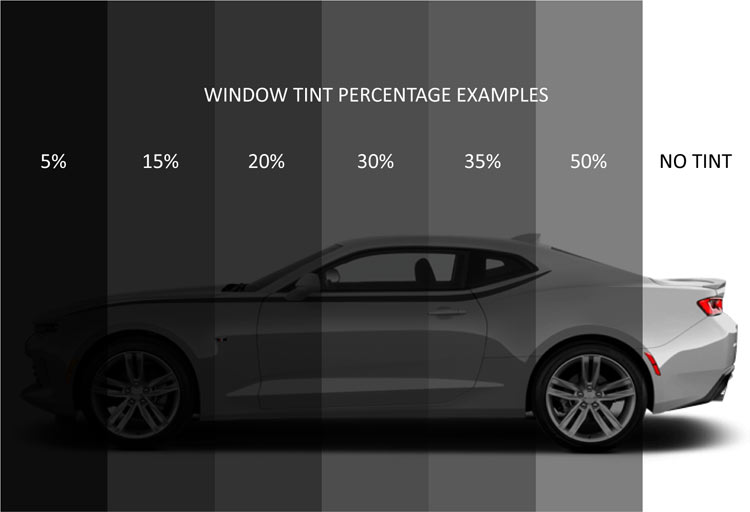Why Window Tinting Is the Best Solution for UV Protection and Glare Reduction
Why Window Tinting Is the Best Solution for UV Protection and Glare Reduction
Blog Article
Window Tinting Regulations: What You Required to Know Prior To Tinting Your Vehicle
Comprehending window tinting laws is important for any automobile proprietor considering tinting their car. Laws vary significantly from state to state, developing details limitations for Visible Light Transmission (VLT) percentages, specifically for front-side home windows and windshields. Failing to adhere to these regulations can lead to penalties, the necessity to eliminate the color, and problems with insurance policy. As you ponder improving your automobile's look and capability, it is crucial to grasp not just the lawful effects yet additionally the useful factors to consider that feature picking the best color. What aspects should you prioritize in your decision-making process?
Relevance of Comprehending Tint Laws
Recognizing home window tinting laws is crucial for car proprietors to ensure conformity with state laws. These laws dictate the permissible levels of tint darkness and reflectivity, which can considerably vary from one territory to another. Falling short to stick to these guidelines can cause penalties, compulsory removal of the color, and potential difficulties during lorry evaluations.
In addition, understanding these regulations helps automobile owners make notified decisions regarding their tinting choices. Various sorts of window movies supply numerous benefits, such as UV protection, warm rejection, and glare decrease. Without knowledge of the legal limits, car owners take the chance of picking items that might inevitably lead to legal problems.
In addition, awareness of tinting legislations cultivates a more secure driving setting. window tinting. Excessively dark colors can harm visibility, raising the danger of accidents, particularly in the evening or in damaging climate condition. Law enforcement companies additionally make use of these policies to make sure road safety and security, making compliance not just a personal duty but a legal obligation
State-Specific Tint Rules
Each state in the U.S. has developed its very own particular laws regarding home window tinting, reflecting a diverse range of requirements and standards. These policies can differ substantially, affecting just how vehicle owners approach setup and compliance. For example, some states enable darker tints on rear home windows while enforcing rigorous restrictions on front-side windows.
Furthermore, policies often specify allowable color products and shades. Particular states ban reflective colors completely, while others may permit them to a restricted degree. Additionally, some territories mandate that lorries with tinted home windows present a sticker label indicating conformity with state legislations, providing a clear recognition for police.
Enforcement of these legislations also varies; some states are extra positive, performing arbitrary checks, while others count on grievances or visible infractions to launch enforcement. Car owners must be aware that failure to abide with state-specific tint guidelines can result in fines, compulsory removal of prohibited tints, or both.

Lawful Tint Percentages
Figuring out the lawful tint percents is important for vehicle owners seeking to follow state policies. Each state has certain regulations controling just how much light must travel through the home windows of an automobile, which is revealed as a percentage referred to as Noticeable Light Transmission (VLT) This percent differs substantially throughout states and can rely on the type of window-- front side, back side, and windshield.
For circumstances, some states enable as low as 20% VLT on front side home windows, while others may permit up to 50%. Windscreen tinting is usually extra limited, with many territories enabling only a slim band of color at the top of the windshield. On the other hand, back windows generally have more forgiving policies, with some states allowing darker colors.
It is vital for vehicle owners to familiarize themselves with their local laws to stay clear of possible legal issues. This consists of understanding just how VLT is determined, as it can vary based on the type of window film made use of. Remaining notified regarding these regulations guarantees conformity and advertises secure driving conditions for both the car proprietor and others on the roadway.
Repercussions of Non-Compliance
Stopping working to adhere to window tinting legislations can lead to check out here considerable repercussions for car owners. Officers trained to identify unlawful color levels may issue penalties, which can differ by jurisdiction but commonly vary from modest to considerable quantities.

Insurance provider may also penalize for non-compliance, as prohibited adjustments can be directory viewed as a breach of plan terms. If an incident occurs., this can affect insurance coverage rates or lead to problems in claims.
Inevitably, the effects of non-compliance prolong beyond immediate economic fines; they can affect a vehicle driver's insurance policy rates, legal standing, and total automobile value, stressing the value of adhering to local home window tinting regulations.
Tips for Finding Tinting Options
Comprehending the effects of non-compliance highlights the value of making notified options when choosing window tinting options. Acquaint on your own with your state's particular laws regarding tint darkness and reflectivity. Each state has special laws that determine the allowable limitations, so ensure you remain within these guidelines to prevent charges.
Second of all, take into consideration the type of tint material. Options include colored, metalized, and ceramic tints, each offering differing levels of heat being rejected, UV defense, and toughness. For instance, ceramic tints provide remarkable warmth resistance without interfering with digital tools, making them a popular selection.
Additionally, assess your main objective for tinting. If you seek improved privacy, choose darker tints; nonetheless, maintain in mind that this may impact exposure in the evening. Alternatively, if glare reduction and UV defense are your navigate to this site primary issues, lighter colors may be enough.
Last but not least, speak with a professional installer who is experienced regarding regional policies and can advise high-quality materials suited to your demands (window tinting). Taking these variables right into account will guarantee you make a knowledgeable choice, eventually improving both your vehicle's appearances and performance
Final Thought
In conclusion, familiarity with window tinting regulations is vital prior to using color to an automobile. By comprehending lawful demands and choosing appropriate color materials, automobile proprietors can accomplish visual enhancement while continuing to be compliant with relevant regulations.
Understanding window tinting regulations is essential for any type of automobile proprietor taking into consideration tinting their automobile.Comprehending window tinting regulations is important for car proprietors to guarantee conformity with state guidelines. Some states permit darker colors on rear windows while imposing stringent limits on front-side windows.
In contrast, rear home windows usually have more lenient laws, with some states permitting darker colors. (window tinting)
In conclusion, experience with home window tinting laws is important prior to using color to a car.
Report this page